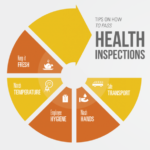How familiar are you with your buyers and their needs?
The following is a list of seven consumer types to help you distinguish between different types of buyers and their expectations.
As you read through the list, pay attention to each buyer decision process and try and determine which buyer you are trying to attract.
7 Different Types of Buyers & Their Decision Processes
The Quality Buyer – “We only buy the best.”
This buyer is convinced that a certain brand or supplier provides the best quality products and services, no matter what the price. This buyer is perfect for those sales representatives who will take advantage of their willingness to pay a little extra. This type of buying can be wasteful and extravagant. Often times you’ll find products of equal, or possibly better, quality from more modestly priced suppliers or less prestigious brands. It is best to compare quality and price rather than focusing solely on reputation or brand.
The Over-Buyer – “I never run out of anything.”
This buyer chooses to guess rather than plan, and therefore orders more than needed of everything to avoid shortages. This type of spending can be expensive and wasteful. By purchasing items in bulk, this buyer is at risk of food items going bad, so it’s best to suggest to this buyer to buy items in smaller amounts but more frequently.
The Under-Buyer – “I hate Inventory.”
Much like the Over-Buyer, this person typically guesses rather than calculates average consumption. They choose to maintain a very low inventory, which can lead to chaos. To compensate, this buyer prefers frequent small or emergency deliveries or trips to the store. These options can result in expensive costs for the buyer. To avoid any problems, the buyer should review the operation’s usage in order to be able to predict the operation’s needs. It’s better to have too much inventory rather than being short on products.
The Bargain Hunter – “I got a great deal!”
This buyer is always looking for a bargain. It’s great to find a good deal, but not when it means compromising quality or yield. A bargain price doesn’t just mean a cheap price; it must be judged by comparing price to quality. The buyer must know the product and it’s market price well enough to know that the net cost of the product is a savings, avoiding inferior quality or lower yielding products. A good rule to follow is: if the deal seems too good to be true, then it probably is.
The Extravagant Buyer – “This new item is great.”
Always needing the latest and greatest can lead to overspending. This buyer typically has no appreciation for the value of money, particularly when they are spending someone else’s – moderation probably doesn’t exist in their vocabulary. This buyer is a sales person’s dream and can be easily attracted to new items, even when the current product is perfectly suitable. The best solution to this buyer is to always compare prices and ask if the product is truly necessary or worth the expense.
The Satisfied Buyer – “We Do A Great Job Purchasing.”
This buyer is content and feels there’s no need for improvement. This buyer has complete trust in their suppliers and rarely compares quality or price with other sources. Complacency can be risky and may lead to negative financial consequences. A smart buyer is never satisfied, always looking for better products and sources. This buyer meets with sales representatives often and is always comparing quality and price, sending a clear message to salespeople that you have an open mind and that no one has a “lock” on your business. Practicing this type of purchasing takes time but can lead to substantial dividends.
The Old Pro – “My salesperson takes great care of us.”
This buyer has been in the business for quite a while. They have formed close relationships with sales representatives going back for years, and tends to fail to compare quality and price, assuming that his go-to guy will take care of him. To improve this practice, it’s important to make sure that new companies and products are evaluated with an open mind. Compare prices regularly and systematically. It’s great to have a solid professional relationship with suppliers, but personal friendships with sales representatives should be discouraged.
With Source1 Purchasing, you can have peace of mind knowing that you are always given the best brands and best prices.











